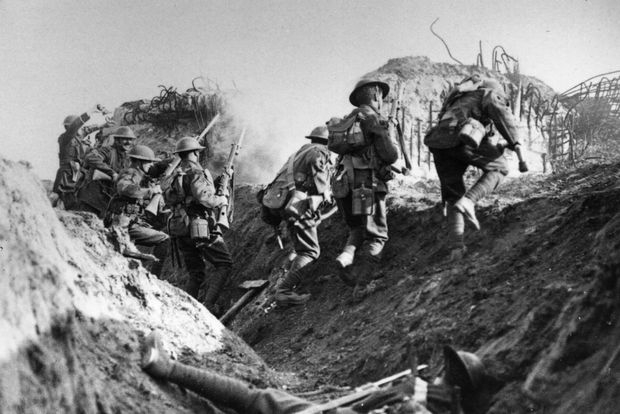From ‘The Finance of the War’, The Spectator, 20 February 1915:
According to Mr. Lloyd George’s estimate, the three Allied Powers together will have expended on war purposes by December 31st next something like £2,000,000,000. British expenditure, he estimates, will exceed that of each of the other two Powers by something between £100,000,000 and £150,000,000. We may take it that the extra cost involved to Great Britain is mainly due to the more liberal scale upon which our soldiers are paid and their dependants supported. The French and Russian Armies receive what in the estimate of the British soldier would be no pay at all, and the French separation allowances are on a very much more modest scale than those which public opinion has rightly compelled the British Government to pay. In addition, Great Britain has to incur very heavy expenditure upon the movement of troops from different parts of the world. As Mr. Churchill, with justifiable pride, pointed out, the British Admiralty have organized the transport of nearly a million men, and the cost of this operation is of necessity considerable.
But however the total cost of the war is distributed between the three great Allies, it has got to be paid, and the greater part of it can only be paid out of borrowed money. Therefore the question of how the money should be raised was one which it was most desirable that the three Powers should consider together. That was the primary justification for the conference of the three Finance Ministers in Paris, for, as Mr. Lloyd George remarked, it is possible by such a conference to settle in a few minutes points that might take months to determine if left to correspondence. It was suggested in many quarters that the three Powers should raise on their joint credit a loan of a thousand millions, but this scheme was rejected, mainly, it appears, on the ground of the difficulty of deciding at what rate of interest the loan should be raised, for it is, of course, notorious that Great Britain can borrow at a somewhat lower rate than France and at a much lower rate than Russia. For some reason, however, the veto of a joint loan was not extended to the advances which the three Powers have found themselves compelled to make to smaller States already involved in the war. These advances are at an opportune moment to be consolidated into a joint loan, the liability for which will be shared in equal portions by the three Great Powers. Apart from this exception, each of the three Great Powers will borrow upon its own credit according to its needs; but presumably the Powers will consult together so that they do not simultaneously come upon the money market, and thus raise the cost of credit against one another.






Comments